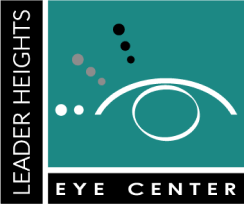Are you experiencing blind spots, blurriness, or other distortions to your central vision? If so, you may have age-related macular degeneration.
Age-related macular degeneration, or AMD, is an incredibly common eye condition that can begin to affect people in their fifties or sixties. Our experienced eye doctors at Leader Heights Eye Center in York, Pennsylvania, can monitor your eyes for any changes and refer you for treatment if needed.
What Is Macular Degeneration?
Age-related macular degeneration is an eye condition that occurs when the macula becomes damaged. The macula is a small structure located at the back of the eye and is part of the retina.
The macula supports your central vision as well as your color vision. It also allows you to perceive detail, whether reading or driving a car.
If you have AMD, your peripheral vision will typically remain unaffected. However, when the macula becomes damaged and is unable to function properly, you may experience various symptoms affecting your central vision.
What Are the Types of Macular Degeneration?
There are two distinct types of AMD which are dry and wet. The dry variety is far more common, affecting most of those experiencing macular degeneration.

As you age, your maculae become thinner because their photosensitive cells begin to break down. In addition, protein deposits grow beneath the retina, and a gradual loss of central vision occurs.
Dry AMD can lead to wet AMD. Although less common, wet AMD is a more severe form of macular degeneration.
In this case, abnormal blood vessels grow beneath the retina. Because they can scar the macula through the leakage of blood and fluid, vision loss occurs faster than with dry AMD.
The development of abnormal blood vessels can lead to a blind spot in your central vision.
What Are the Symptoms of Macular Degeneration?
Many people may not even realize they have macular degeneration in its early stages due to a lack of noticeable symptoms. It can begin in one or both eyes.
As it progresses, you may experience a variety of symptoms, including:

- Blurry vision
- A blind or dark spot in your central vision
- Loss of central vision
- Straight lines appearing wavy
- Distortion to the shape of objects
- Difficulty driving
- Difficulty reading and performing other up-close tasks
- Difficulty recognizing faces
- Changes in color perception
If you are experiencing any of these symptoms, you should schedule an appointment as soon as possible. Your eye doctor will be able to thoroughly examine your eyes to determine the cause of your symptoms.
Who Is at Risk of Developing Macular Degeneration in Lancaster?
Experts do not know the exact cause of macular degeneration at this time. However, some factors can increase your likelihood of developing this disease.
The most significant factor is your age. Age-related macular degeneration is the leading cause of severe vision loss for individuals over fifty.
If you are around or above this age, pay special attention to any symptoms that could indicate changes to your vision. Your dietary habits have the potential to increase your risk for AMD.
A diet high in fats can make you more likely to develop this disease. So, be sure to keep your plate balanced in order to maintain your eye health.
The same is true for lifestyle choices such as smoking, an insufficiency of exercise, and exposure to UV light. Limit your tobacco intake as much as possible, and always wear sunglasses when outside.
In addition, get plenty of exercise to support the healthy functioning of your body, including your eyes. High blood pressure, high cholesterol, and heart disease have also been linked to macular degeneration.
Finally, your family history can play a role in your chances of experiencing AMD. While it is not a guarantee, you will be more likely to develop it if it runs in your family.
How Is Macular Degeneration Diagnosed?
If you suspect you may have symptoms of AMD, our experienced eye doctors in York will be able to determine the cause through a comprehensive exam. This includes an evaluation of your eyes and discussing your medical history.
Your eye doctor will then be able to determine whether you have macular degeneration or whether any other eye conditions may be occurring. Your eye doctor will dilate your pupils.
Once your pupils are dilated, your eye doctor will be able to take a close look to check the condition of your macula and retina and find out if any changes have taken place.
Your eye doctor may also use a specialized machine to take detailed images of your eye. An Amsler grid is a standard method of screening for AMD.
Your eye doctor may ask you to look at this network of straight lines so they can detect any distortions to your vision or blind spots. In the event you need treatment for age-related macular degeneration, we partner with a skilled group of practices in the area to ensure you get the best care possible.
Are you interested in learning more about how macular degeneration can affect your vision? Schedule an appointment at Leader Heights Eye Center in York, PA, today!

